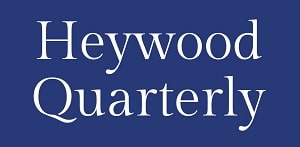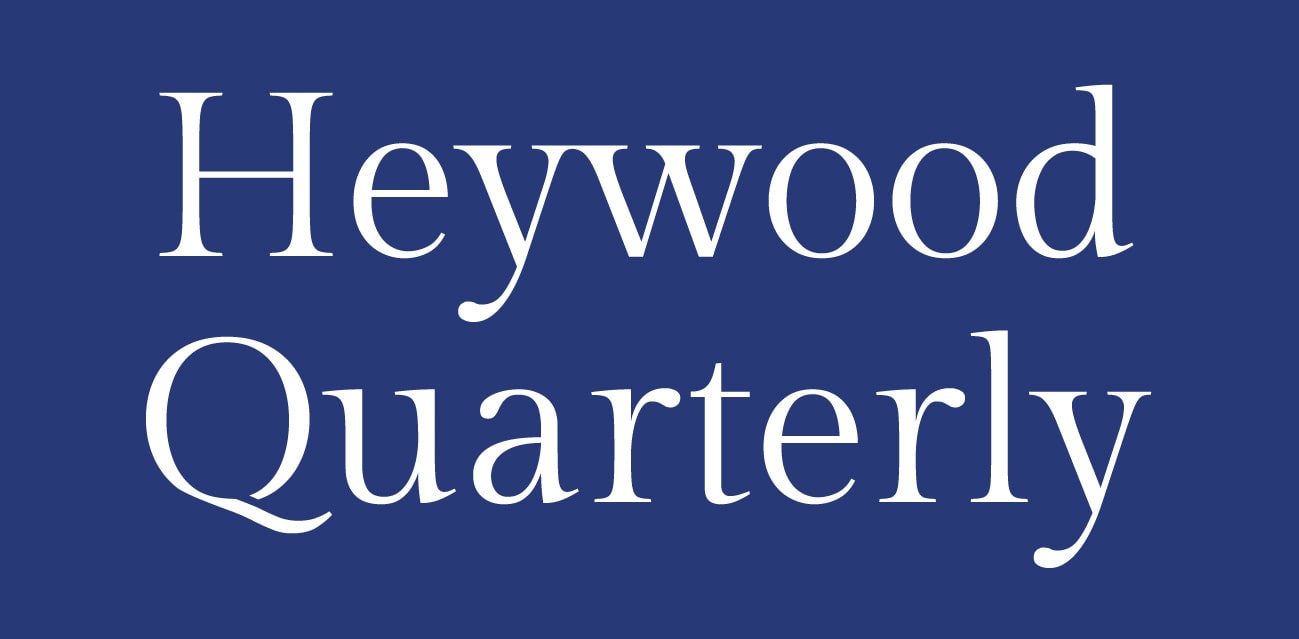Sharon White, until recently chairman of the John Lewis Partnership, says imaginative ownership models can improve our public services
Poll after poll shows that what the public most want from their politicians is public services that work. Local schools offering outstanding education. A GP appointment when you or your family needs it. Fast access to accident and emergency care. Clean water to drink or swim in. Higher education that sets you up for your career. An affordable home close to friends and work.
Yet satisfaction with the state of public services has dropped dramatically in the last five years, and with it the public’s confidence that leaders have the wherewithal to turn things round. Earlier this year, an Ipsos report suggested 71% of the British public believe public services are failing to meet their expectations; the Post Office scandal is seen as emblematic of public services that do not serve the public.
The new Government faces the unenviable task of making improvements with money tight after substantial sums were spent on Covid and cost of living support. The amount of tax we pay as a share of total income has nudged up to 36%, the highest since 1948. Yet the gap between what the Government spends and what it recoups in revenues remains stubbornly high; that gap will have to be narrowed to get the public finances onto a sustainable path.
Never has there been a greater need for creative solutions to public service reform that don’t depend on major injections of cash. The Government’s focus on growing the economy so that there is more money around to invest is laudable. But money is only part of the solution, even if it were available in larger amounts than it is today.
Crucial to their performance is how public services are organised and regulated; how their leadership is incentivised to put customers (patients, students, passengers) first; and how leaders are held to account if and when things go wrong.
At a time when creative solutions are desperately needed, mutualisation is one such solution. Giving workers or users of services a direct say over how those services are managed and run – and potentially a direct stake through share ownership – could drive up standards, reduce failure and cut costs. Not overnight, but as part of a long-term programme of reform.
Mutualisation is an option that has already been flagged in the context of a new Independent Water Commission to be chaired by former deputy Bank of England governor Sir Jon Cunliffe; likely to considered as part of the forthcoming review of funding for the BBC; and discussed as a possible answer to the travails of the Post Office.
The mutualisation concept was last seriously examined by the Coalition Government of Conservatives and Liberal Democrats that ran from 2010 to 2015. This was the period best known for the ‘austerity’ programme of public spending cuts and tax rises. Senior members of both sides of the Coalition took an interest in different models of mutualisation.
Francis Maude, who was (Conservative) Minister for the Cabinet Office, in 2010 launched ‘Pathfinder mutuals’, a group of spin-off public services (ranging from further education to children’s services) designed to test the efficacy of employee-led mutuals and the types of support they needed to succeed.
Nick Clegg, the then Deputy Prime Minister and leader of the Liberal Democrats, was another strong advocate. He called mutualisation the ‘touchstone of economic liberal thought for more than a century’, referring to John Stuart Mill, the liberal thinker who believed the model could ‘end the feud between capital and labour’.
Clegg argued that the weakness of capitalism was not that too many people had capital but that too few did. He proposed a ‘John Lewis economy’, a nod to the John Lewis Partnership, which I chaired until September this year. JLP is the largest employee-member mutual in the UK, having 70,000 employees (known as ‘Partners’), 21 million customers and revenues of £12bn; it is the third largest of its type in the world. It operates two major retail brands – the John Lewis Department Stores and Waitrose Grocers.
The Partnership is held ‘in trust’ for the 70,000 Partners who work there. While they don’t directly own shares, when profits allow, they receive a dividend in the form of a ‘Partnership Bonus’ which is paid into their salary, whatever their level in the business.
Formal structures ensure Partners have a say in how the business is run and managed. A Council of around 60 elected Partners holds the Chairman to account for the Partnership’s performance. And partners can take their questions or concerns to local and regionally-elected groups, from which they can expect a response.
The Coalition Government established a Mutual Task Force with the aim of making the 2010s the decade of employee ownership. Despite the intent, there has been relatively little mutualisation of the public sector. The Department of Media Culture and Sport estimates that there are around 130 public sector mutuals (some given over to employees, others to users of the services). They have an average annual revenue of around £20m, a drop in the ocean set against the £225bn spent each year on the NHS.
Plain inertia or poor understanding of the mutual model and its potential benefits may explain the lack of take-off, other than in some corners of the health and social care sectors.
In 2022, for example, Minehead Medical Centre became the first GP surgery in the UK to adopt a John Lewis-style trust. Doctors and nurses draw a salary and have more say about how the practice is run than they used to, and more self-determination.
The Circle, a private company, has established a new group of private hospitals operating within the NHS as employee-owned. Just under half the hospitals’ shares are held by employees who have a say in how the hospital is managed.
The most recent evaluations of public service mutuals present a reasonably positive picture, though the evidence does not distinguish between employee and user-led models.
A 2021 study by Social Enterprise UK found that those organisations commissioning services were positively disposed towards mutuals. The mutuals themselves, it observed, faced challenges such as balancing democracy with decisiveness, as well as a sector-wide funding squeeze.
A 2019 DCMS review of 72 mutuals showed that staff were happier and more engaged, and financial performance and productivity were above the average for the sectors in which they operated. Their major challenges were recruitment (which appears to be a sector-wide problem) and weak capability in procurement.
Could mutualisation – whether led by employees or users – be a creative solution to services that were previously delivered by the public sector but now face challenges as regulated private entities?
Writing in the Times in September, Rose Marley, CEO of Cooperatives UK, made the general case: ‘There’s a reason why cooperatives and mutuals continue to demonstrate a fairer, equitable and sustainable and more desirable way to run a business. And yet, mutualisation is rarely presented as a solution. When things go wrong, why do we discuss only privatisation or nationalisation? Why is there seldom any dialogue around allowing people – the customers, the community, the local infrastructure – to participate in ownership and decision making?’
Mutualisation could help address the well documented difficulties of Thames Water – the UK’s biggest water company. Moody’s and S&P suggested in September 2024 that the company was struggling to find the cash to meet its debt obligations, with S&P rating its management and governance as ‘negative’. The company itself has said that it will run out of cash in May 2025 without a further injection, and a number of investors have written down their investments to zero.
Mutualisation could provide a third way between privatisation and renationalisation. Shares could be made available to customers or to employees, who would then have a real and visible stake in the company and its success. They could potentially exert more pressure on management and drive up performance – helping tackle sewage and leaks, for example – in a way that may be harder to achieve even for shareholders with regulatory oversight.
In my experience, there can be some big upside of being part of an employee-led mutual, but as with any model there are challenges too. And differences in market environments – water is a regional monopoly; retail is highly competitive – complicate comparisons. If John Lewis or Waitrose don’t perform, customers can take their business elsewhere. That is not possible with water.
I have found that being an owner of a business where you work engenders a different order of passion and commitment. It can create a virtual circle of superior customer service, increased customer loyalty, higher profit, and higher member bonuses. I have also seen how customers, and the public more generally, feel their own sense of ownership over the Partnership, more akin to the pride felt in some quarters towards the BBC or NHS, than towards a conventional retailer.
Looking across different sectors, The Employee Ownership Association found this model of business to be more profitable and the people working in it to be happier than in more conventional companies (albeit most businesses with this model are small scale).
Employee-owned businesses, of course, are by their very nature more consultative and require a particular kind of leadership to maintain momentum, and a degree of altruism on the part of workers that puts the business first, ahead of personal needs. For example, the Partnership did not pay an employee bonus in three of the last four years so as to preserve cash through Covid and its aftermath. The business has now returned to profit, debt is on track to be the lowest in a generation and investment this year will be a record high.
Then there is the question of funding. In employee-owned businesses there are no external shareholders. These enterprises can only spend the cash they generate. In Australia, where mutuals are more common, the Government established a specific instrument – the Australia Mutual Instrument, underwritten by the public sector. Investors receive a fixed return; they have no say over the running of the business and funds count as equity not debt.
Gareth Thomas, Chair of the All Party Parliamentary Group for Mutuals, has argued for a similar instrument to be introduced in the UK, supported by the Social Market Foundation in its 2023 report. So far, legislation has not been forthcoming.
In water, given that customers cannot shop around, the focus would be best directed at how to give them more say. This could mean moving to a customer-owned mutual that would involve major transitional issues. Or it could mean customers having more say over key decisions, like the amount that is invested each year in pipe repairs to reduce sewage spills. This would have to be carefully and skillfully intermediated by the regulator with investors who demand a fair return.
Interestingly, there is within water a model that is not- for- profit, and not a mutual. Welsh Water was set up as a company limited by guarantee with a group of ‘members’ acting as the oversight body. It has been funded entirely through debt and any cash surpluses are used to pay down debt or lower bills. Whilst Welsh Water shares many of the same problems of leakages and sewage overflows as the rest of the sector, its staff and customer engagement scores are strong.
Moving away from binary distinctions of ‘private’ or ‘public’ will create an opening for mutualisation – customer or employee-led – as a new Third Way. It will require courage, determination and, at a practical level, legislation to crack the funding challenge. It will also require buy-in from key interest groups, not least trade unions. This is no less important than it is urgent. It presents an enormous opportunity for capable and entrepreneurial leadership. The prize is surely worth any short term upheaval.
Sharon White is a British businesswoman who served as Chairman of the John Lewis Partnership from 2019 to 2024. She was previously chief executive of Ofcom, and before that held a variety of roles in the Civil Service.





